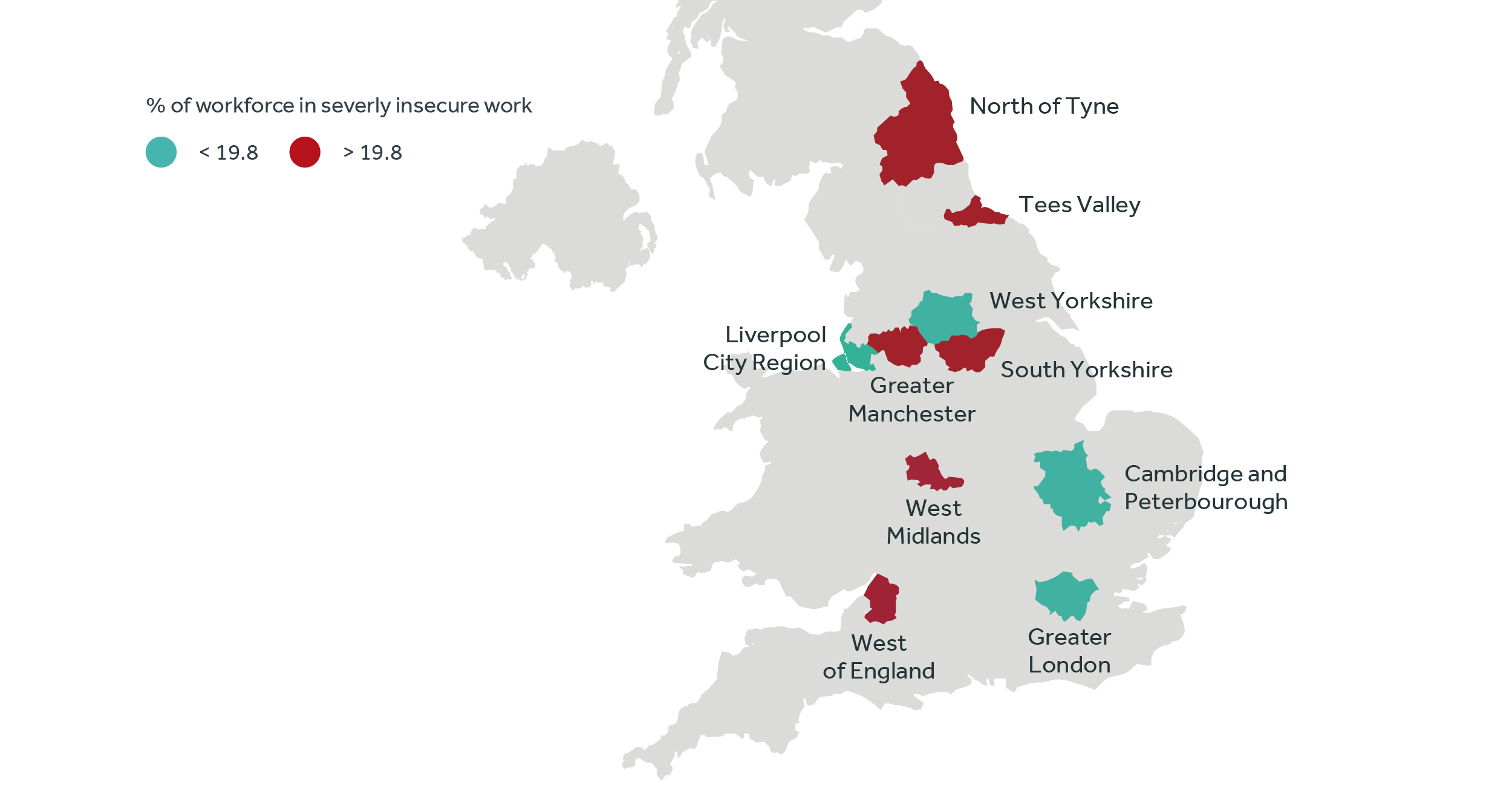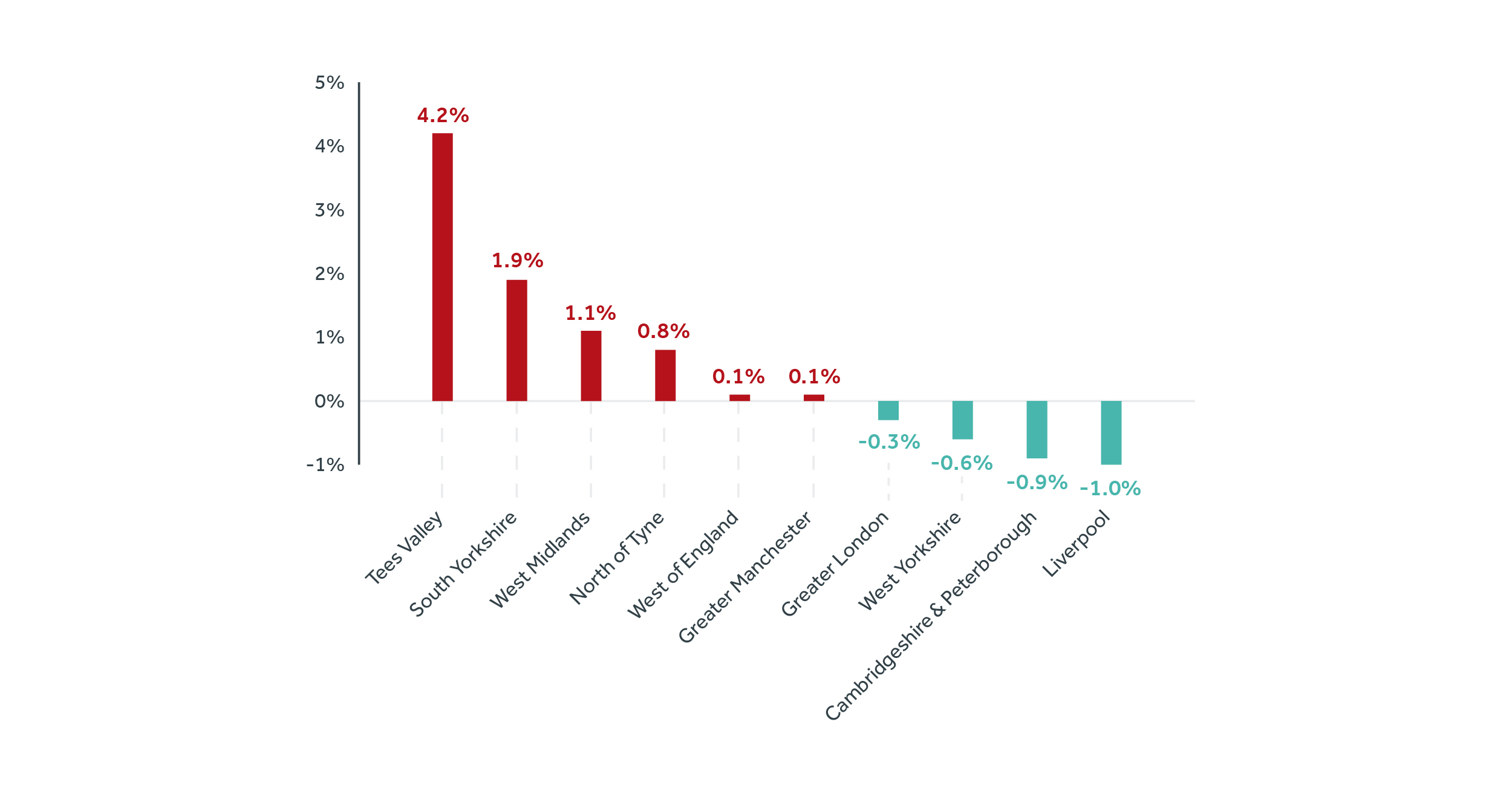Delivering Levelling Up? How secure work can reduce regional inequality
Posted on

This new report reveals the regions with the highest and lowest levels of ‘severely insecure’ work (employment that is involuntarily temporary or part-time, or when multiple forms of insecurity come together, such as casual or zero-hours contracts, or low or unpredictable pay).
The study focuses on the nine Mayoral Combined Authorities and Greater London, where over a third of England’s workforce – 11 million workers – live. Of these workers, 2.2 million (19.4%) are in severely insecure work.
Figure 1: Map of above, and below average, incidence of severely insecure work across Combined Authorities in England and Greater London 
Insecure work is a national issue, but the consequences are felt locally
Analysis shows those in Tees Valley are most at risk of severely insecure employment, with levels of insecure work being 4.2 percentage points higher than the national average. This equates to one in four Tees Valley workers experiencing severely insecure work, compared with one in five workers nationally. The picture is even more stark in Middlesbrough, where nearly a third of workers (29.8%) are in severely insecure work – 10 percentage points higher than the national average.
Figure 2: Divergence from average levels of insecure work 
This research finds that higher levels of unemployment and inactivity tend to coincide with higher levels of severely insecure work across local economies, and suggests that insecure work should be used alongside others as a measure of the health of labour markets.
Insecure jobs tend to be concentrated in specific sectors, such as hospitality, social care and administrative services – but the level of insecurity differs across the country as a result of differences in the productivity of these sectors in respective places, with some providing higher value activities than others.
Boosting secure jobs can grow local and regional economies
With a General Election likely in 2024, and seven combined authorities (including Greater London) holding elections in the same year, it could be a pivotal year for renewing and elevating commitments to reduce insecure work and level up city regions and the UK by 2030.
Together UK Government and Combined Authority Mayors can focus on two complementary ambitions over the next five years:
Significantly reduce levels of severely insecure jobs across the UK by 2030 by:
- introducing a comprehensive Employment Bill that puts job quality and security at the heart of labour market regulation
- strengthening the social security safety net
- better enforcing existing workers’ rights.
Ensure that no English Mayoral Combined Authority is home to higher levels of severely insecure work than the national average by:
- prioritising tackling severely insecure work in local economic development plans and strategies
- evolving and learning from Employment Chapters
- reviewing investment strategies
- working together with enforcement bodies to deal with high-risk sectors.
Event recording
On Tuesday 21 November 2023, the Work Foundation hosted the Delivering Levelling Up? webinar. The webinar explored new research looking at how where you live and work in England can have a significant impact on your ability to access secure and well paid work.
Related Reports
Back to report listing




